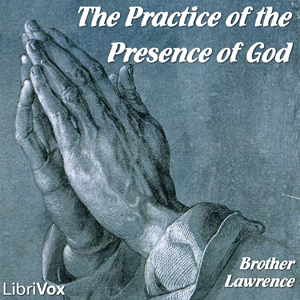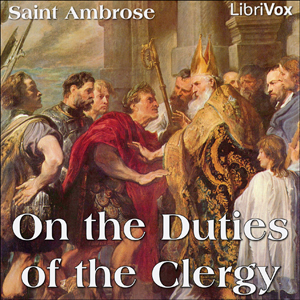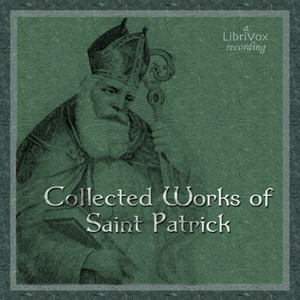- Stanzas
- Prologue
- Book I, The Obscure Night; Chapter I, Two Kinds of this Night
- Book I, Chapter II, The Nature of the Obscure Night
- Book I, Chapter III, The Privation of the Desire
- Book I, Chapter IV, The Mortification of the Desire
- Book I, Chapter V, The Same Subject
- Book I, Chapter VI, Two Great Evils of the Desires
- Book I, Chapter VII, The Desires Torment the Soul
- Book I, Chapter VIII, The Desires Darken the Soul
- Book I, Chapter IX, The Desires Pollute the Soul
- Book I, Chapter X, The Desires Make the Soul Lukewarm
- Book I, Chapter XI, Freedom from the Desires
- Book I, Chapter XII, Desires Which Injure the Soul
- Book I, Chapter XIII, The Night of Sense
- Book I, Chapter XIV, The Second Line of the Stanza
- Book I, Chapter XV, The Last Lines of the Stanza
- Book II, The Second Night, Chapter I, The Second Stanza
- Book II, Chapter II, The Cause of the Second Night
- Book II, Chapter III, Faith, The Dark Night of the Soul
- Book II, Chapter IV, The Soul Must be in Darkness to be Guided
- Book II, Chapter V, Union of the Soul with God
- Book II, Chapter VI, Virtues that Bring the Soul into Emptiness and Darkness
- Book II, Chapter VII, Freedom and Detachment in the Way of Life
- Book II, Chapter VIII, Nothing Comprehensible can be a Means of Union with God
- Book II, Chapter IX, Faith may attain the Divine Union of Love
- Book II, Chapter X, Divisions of the Apprehensions of the Intellect
- Book II, Chapter XI, Hindrances from the Apprehensions
- Book II, Chapter XII, Of Natural and Imaginary Apprehensions
- Book II, Chapter XIII, When to Withdraw the Intellect from Imaginary Forms
- Book II, Chapter XIV, Necessity of Observing these Signs
- Book II, Chapter XV, Exerting the Natural Faculties to Enter Contemplation
- Book II, Chapter XVI, Imaginary Apprehensions Supernaturally Represented
- Book II, Chapter XVII, Communication of Blessings to the Interior Senses
- Book II, Chapter XVIII, How these Visions can become Occasions for Error
- Book II, Chapter XIX, Revelations, though True, may Deceive
- Book II, Chapter XX, Divine Locutions are Not Always Certain in their Causes
- Book II, Chapter XXI, God Displeased with Certain Prayers, though Answered
- Book II, Chapter XXII, Unlawful to Enquire of God by Supernatural Means
- Book II, Chapter XXIII, Spiritual Apprehensions of the Intellect
- Book II, Chapter XXIV, Two Kinds of Spiritual Apprehensions
- Book II, Chapter XXV, Nature and Division of Revelations
- Book II, Chapter XXVI, Two Kinds of Pure Truth
- Book II, Chapter XXVII, Disclosure of Mysteries may Hinder Divine Union
- Book II, Chapter XXVIII, Interior Locutions which Occur Supernaturally
- Book II, Chapter XXIX, Words Formed by Self Recollection
- Book II, Chapter XXX, Words Wrought Supernaturally
- Book II, Chapter XXXI, Substantial Interior Locutions
- Book II, Chapter XXXII, Intellectual Apprehensions Arising from Interior Locutions
- Book III, The Active Night, Chapter I, Apprehensions of the Memory
- Book III, Chapter II, Evils to which the Soul is Liable, when not in Darkness
- Book III, Chapter III, Evil Through the Natural Apprehensions of the Memory
- Book III, Chapter IV, Evil Through the Natural Knowledge of the Memory
- Book III, Chapter V, Profit of Forgetfulness and Emptiness
- Book III, Chapter VI, Imaginary and Supernatural Apprehensions
- Book III, Chapter VII, Evils Inflicted by Supernatural Knowledge
- Book III, Chapter VIII, Self Conceit and Presumption
- Book III, Chapter IX, Imaginary Apprehensions of the Memory
- Book III, Chapter X, Distinct Supernatural Apprehensions
- Book III, Chapter XI, Imaginary Supernatural Apprehensions
- Book III, Chapter XII, Benefits of Withdrawing from the Imagination
- Book III, Chapter XII, Spiritual Knowledge as it Relates to the Memory
- Book III, Chapter XIV, Guidance in Relation to the Memory
- Book III, Chapter XV, The Obscure Night of the Will
- Book III, Chapter XVI, The First Affection of the Will, Joy
- Book III, Chapter XVII. Joy in Temporal Goods
- Book III, Chapter XVIII, Evil Resulting from Joy in Temporal Goods
- Book III, Chapter XIX, Benefits of Withdrawing from Temporal Goods
- Book III, Chapter XX, Joy in Natural Goods is Vanity
- Book III, Chapter XXI, Evils of Rejoicing in Natural Goods
- Book III, Chapter XXII, Benefits of Not Rejoicing in Natural Goods
- Book III, Chapter XXIII, Nature and Varietes of Sensible Goods
- Book III, Chapter XXIV, Evils of Rejoicing in Sensible Goods
- Book III, Chapter XXV, Benefits of Self Denial in Sensible Things
- Book III, Chapter XXVI, Moral Goods, and Lawful Rejoicing in Them
- Book III, Chapter XXVII, Seven Evils of such Rejoicing
- Book III, Chapter XXVIII, Benefits of Repressing Joy in Moral Goods
- Book III, Chapter XXIX, The Fifth Kind of Goods in Which the Will has Joy
- Book III, Chapter XXX, Evils from Rejoicing in this Kind of Goods
- Book III, Chapter XXXI, Benefits of Self Denial in the Joy of Supernatural Graces
- Book III, Chapter XXXII, The Sixth Kind of Goods
- Book III, Chapter XXXIII, The Conduct of the Will with Respect to Intellect and Memory
- Book III, Chapter XXXIV, Of Spiritual Goods that Distinctly Affect the Will
- Book III, Chapter XXXV, The Ignorance of Some People in the Matter of Images
- Book III, Chapter XXXVI, The Joy of the Will in Sacred Images
- Book III, Chapter XXXVII, Oratories and Places of Prayer
- Book III, Chapter XXXVIII, The Right Use of Churches and Oratories
- Book III, Chapter XXXIX, Continuation of the Same Subject
- Book III, Chapter XL, Evils of Indulgence in Places and Objects of Devotion
- Book III, Chapter XLI, Other Motives of Prayer
- Book III, Chapter XLII, Three Kinds of Devotional Places
- Book III, Chapter XLIII, How the Will is to be Directed in these Devotions
- Book III, Chapter XLIV, The Second Kind of Goods in which the Will Vainly Rejoices
The Ascent of Mount Carmel is one of the timeless classics of Christian contemplation, radical in its time and deeply influential in the world today. St John of the Cross and St Teresa of Avila worked together to reform the Carmelite Order in the Roman Catholic Church, in which he is honored as one of the Doctors of the Church. An active priest and teacher in his lifetime, this work is considered primary source material the training of Spiritual Directors, and an essential set of guidelines for all students of Revelation through Divine Love. ( Ed Humpal)
There are no reviews for this eBook.
There are no comments for this eBook.
You must log in to post a comment.
Log in











